The opening day of Milipol Asia-Pacific – TechX Summit 2024 dazzled attendees with its exhibition of cutting-edge homeland security technologies and eye-opening conference on AI and homeland security.
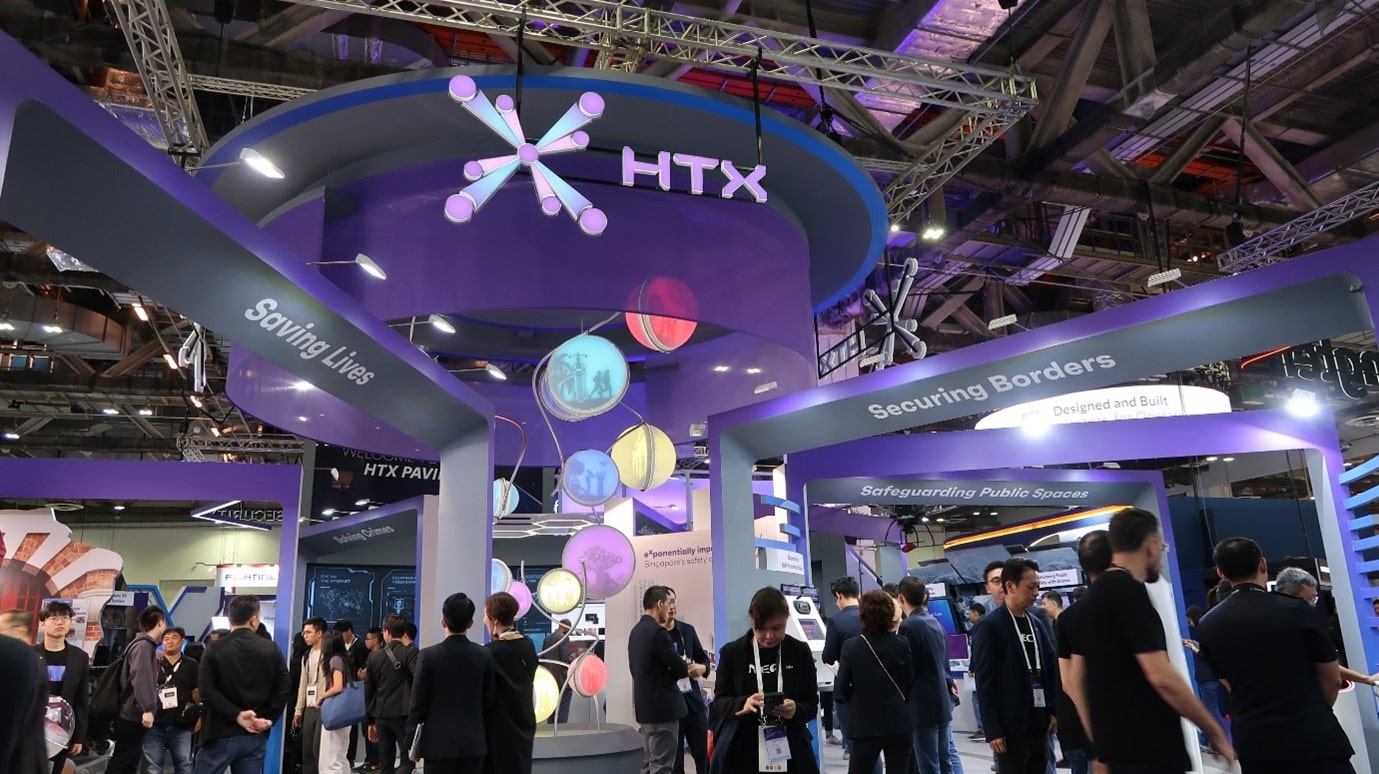 Visitors flocked to the HTX Zone – the eye-catching centrepiece of the MAP-TXS 2024 exhibition hall – for a chance to interact with our latest innovations for homeland security. (Photo: HTX)
Visitors flocked to the HTX Zone – the eye-catching centrepiece of the MAP-TXS 2024 exhibition hall – for a chance to interact with our latest innovations for homeland security. (Photo: HTX)
At Singapore’s iconic Sands Expo and Convention Centre, TechX Summit (TXS) and Milipol Asia-Pacific (MAP) came together for the first time on 3 April 2024 as the Asia-Pacific’s premier homeland security conference and exhibition.
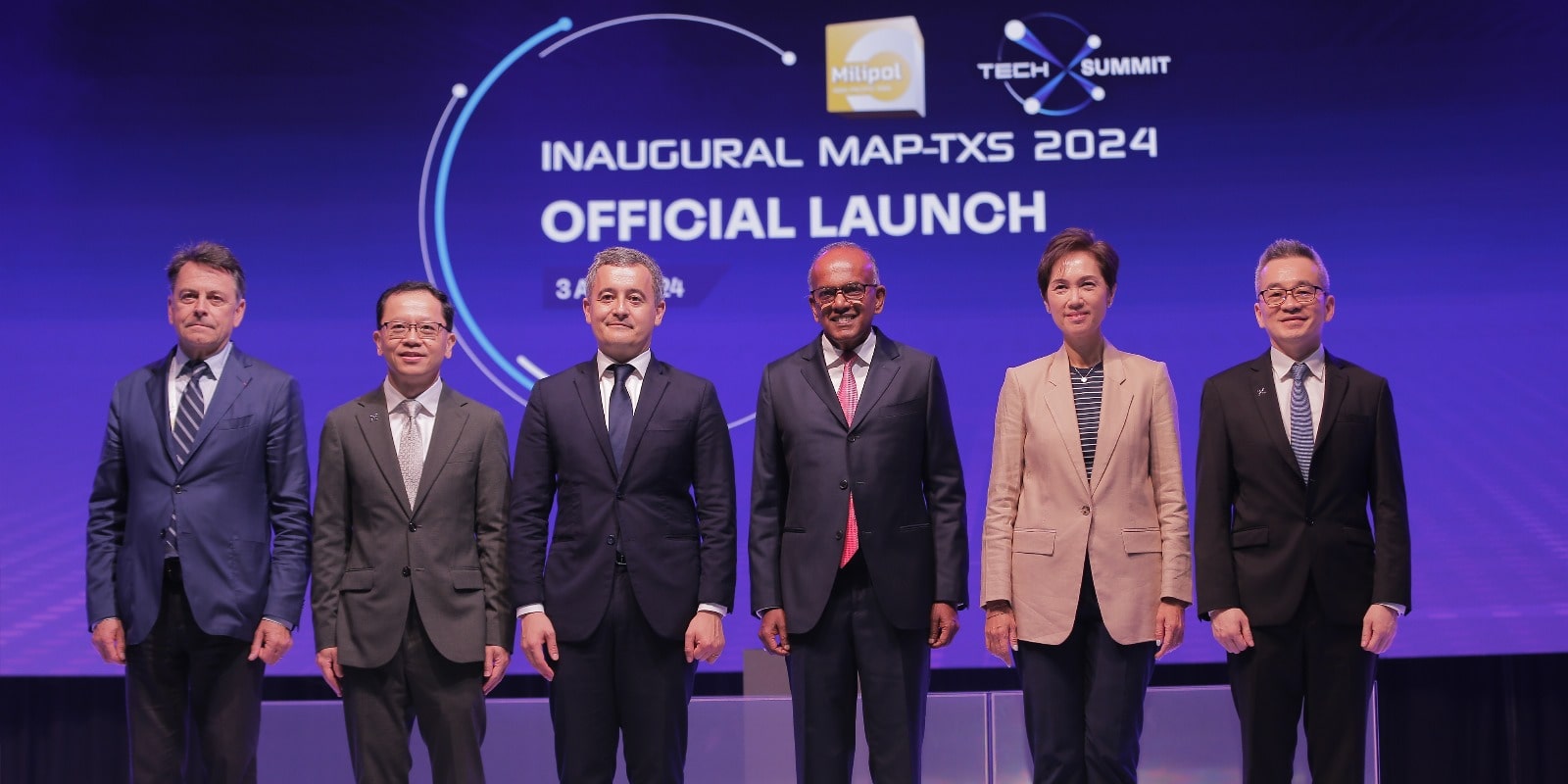
(From left to right) Mr Yann Jounot, President Civipol; Mr Aubeck Kam, Chairman HTX, Permanent Secretary (Home Affairs Development) and Permanent Secretary (Social and Family Development); H.E. Gérald Darmanin, France’s Minister of the Interior and Overseas France; Mr K. Shanmugam, Singapore’s Minister for Home Affairs and Minister for Law; Mrs Josephine Teo, Minister for Communications and Information and Second Minister for Home Affairs; and Mr Chan Tsan, Chief Executive, HTX and Deputy Secretary (Development), MHA, came together to launch MAP-TXS 2024. (Photo: HTX)
This event, which was the fruit of a partnership between HTX and its French counterpart Civipol, was launched by a high-powered delegation which included Singapore’s Minister and Second Minister for Home Affairs as well as France’s Minister of the Interior.
In his welcome remarks, HTX’s Chief Executive Chan Tsan explained that MAP-TXS 2024 “is the result of MAP and TXS joining forces because Civipol and HTX saw obvious synergies between Milipol’s scale and global reach and TechX Summit’s focus on fostering dialogue and collaboration amongst the Homeland Security community.” These synergies led to 350 companies from over 31 countries and over 10,000 visitors from around the world expected to attend the MAP-TXS exhibition and conference. As he noted, “The scale and reach of MAP-TXS will far surpass MAP and TXS individually.”
Minister for Home Affairs and Minister for Law Mr K. Shanmugam noted in his opening address that the “very strong turnout” for the opening of MAP-TXS “demonstrates a clear desire for the homeland security community to work together.”
He also shared with the audience the progress HTX has made since it was formed 5 years ago, and how much it has contributed to Singapore’s safety and security, “So if you look at the five years since – when they briefed me, I sit back and say, how could we have done without them? That's how effective they've been.”
AI and homeland security
Minister Shanmugam also addressed the question of artificial intelligence (AI) and homeland security in his opening address, which was the theme of the MAP-TXS conference. He noted that while “AI is a challenge all of us are grappling with,” it has also proven to be a powerful tool, “If you look at our homeland security, we use AI to help fight crimes.” He shared the example of “Video analytics in our network of Police Cameras – by 2030, there will be more than 200,000 of them across the island to deter, detect and solve crimes faster.”
Likewise, the French Minister of the Interior Gérald Darmanin observed that while AI has shaken up the strategic homeland security environment and brought new threats, it has also proven to be helpful in safeguarding a country. For example, he shared that France has used AI for security measures in the 2024 Olympic games.
This discussion of AI and homeland security carried over to the opening panel of the MAP-TXS conference, which gave the audience a strategic overview of AI’s present and future.
Dr Dimitri Kusnezov, the Under Secretary for Science and Technology at the US Department of Homeland Security, warned that AI attacks are not only occurring through traditional malicious vectors but also through new pathways that governments have not seen before.
These unforeseen threats are hard for governments to prepare for. Governments need to set standards in testing and evaluating AI so that they know the exact bounds of AI systems and their potential complications.
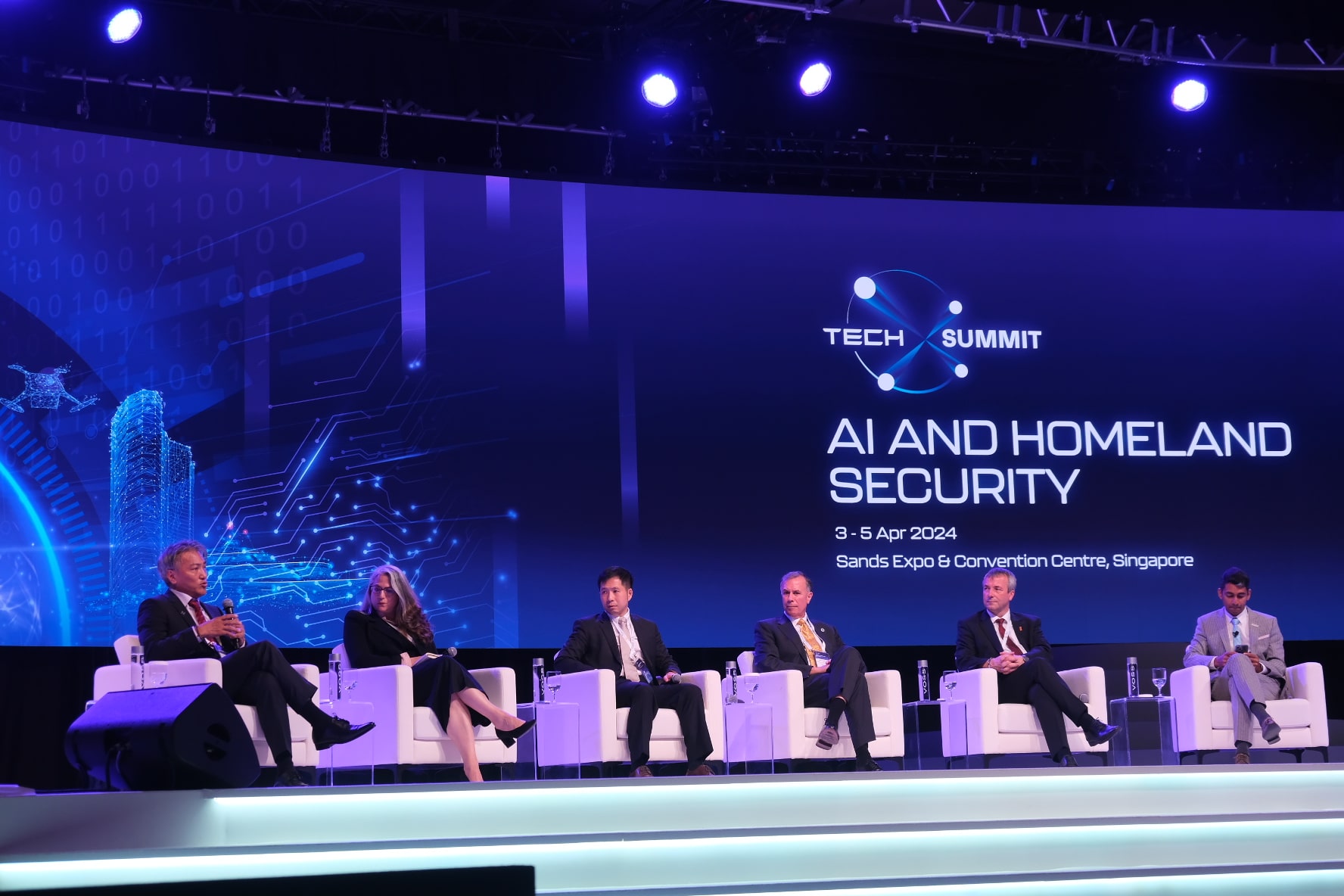
(From left to right) Ng Yeow Boon, Prof. Jennifer Rubin, Sim Feng-Ji, Dr. Dimitri Kusnezov, Johann Saathoff, and moderator Gaurav Keerthi, Executive Vice President, Advisory and Emerging Business, Ensign InfoSecurity (Photo: HTX)
Governments need to test AI systems across multiple use-cases to see when and how they fail, advised Sim Feng-Ji, Deputy Secretary (Smart Nation Digital Government), Prime Minister’s Office, Singapore. This is urgent given how high incidence crimes such as scams are being driven increasingly by AI. While high impact AI crimes, such as foreign adversaries trying to move public sentiment, are still rare, they are potentially destabilising for society.
Johann Saathoff, the Parliamentary State Secretary of Germany’s Federal Ministry of the Interior and Community, warned that governments will need to address the challenges to all segments of society posed by AI. For example, the elderly will need help dealing with new problems such as deepfakes.
Prof. Jennifer Rubin, the Chief Scientific Adviser and Director General, Science, Technology, Analysis and Research (STAR), UK Home Office, suggested that governments should allocate the appropriate funding and invest in training their people in AI skills, and build public trust with transparent guidelines and communications on AI-related issues such as reducing bias. Governments should also develop clear AI strategies as this will help them to galvanise action around the pertinent areas and prevent their efforts from going all over the place.
If governments don’t train their officers in AI, they risk their homeland security capabilities falling behind those of the bad actors, warned Ng Yeow Boon, HTX’s Deputy Chief Executive (Development). However, if governments implement AI too quickly, or if they cut corners implementing AI, they could end up with fragmented AI systems that don’t work in the long-term.
The future of homeland security shines bright
As the conference was going on, visitors at the MAP-TXS 2024 exhibition hall explored exciting displays of cutting-edge technologies that pushed the boundaries of homeland security, presented by the 350 exhibiting companies including those that formed national pavilions from the likes of China, Italy, France, Germany, Hungary, Singapore, and the US.
At the vibrant HTX Zone, our friendly Xponents invited visitors to immerse themselves in an experiential journey across five zones: Saving Lives, Solving Crimes, Safeguarding Public Spaces, Securing Borders and Seeding Innovation.
One such Xponent was Aw Rui Huan from the Robotics, Automation and Unmanned Systems Centre of Expertise (RAUS CoE). When asked about her first day at MAP-TXS 2024, she shared, “I’m very happy there’s been a lot of interest in our insect hybrid robot booth, and the visitors really enjoyed seeing real cockroaches in action. It’s a real attraction, and I’m excited to introduce them to more people.”
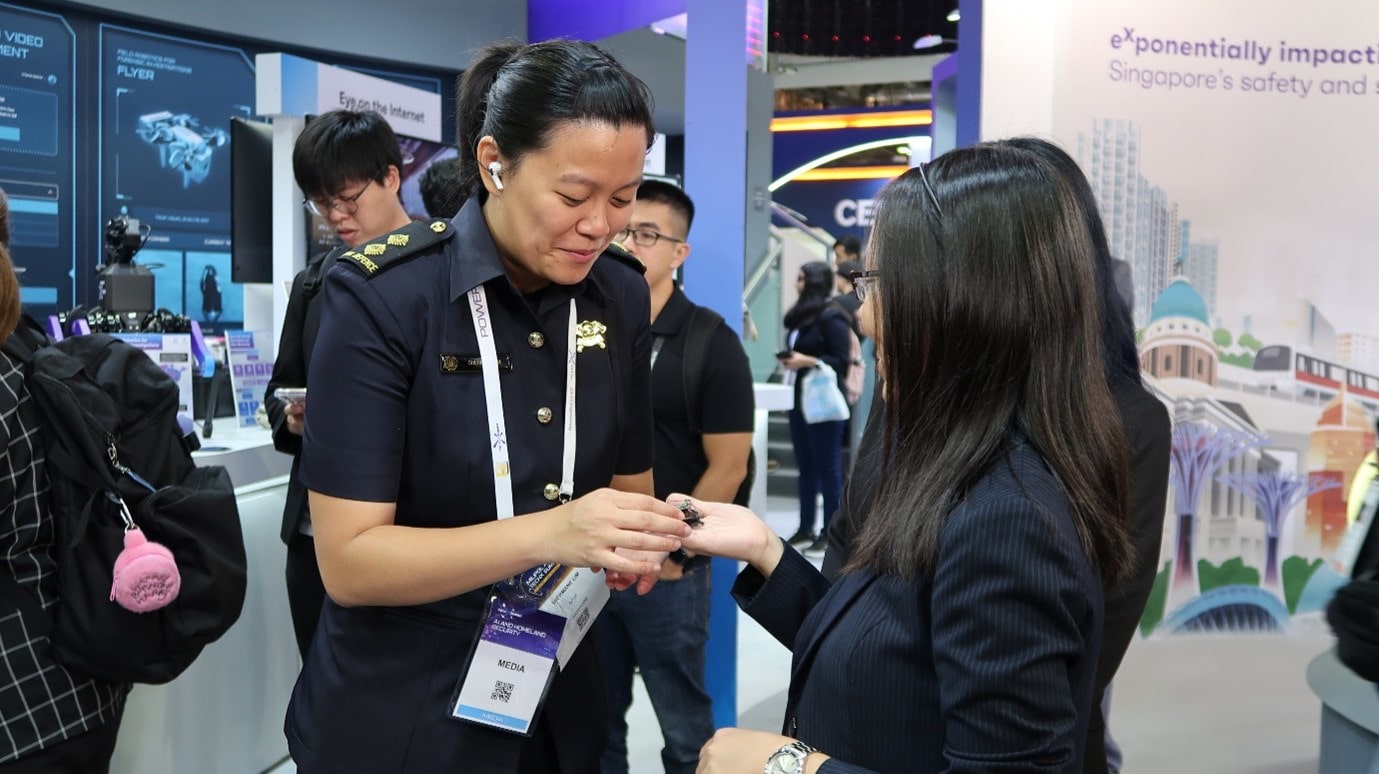
Rui Huan inviting a Home Team officer to have a feel of the potentially life-saving insect hybrid robot which can be deployed in search and rescue operations. (Photo: HTX)
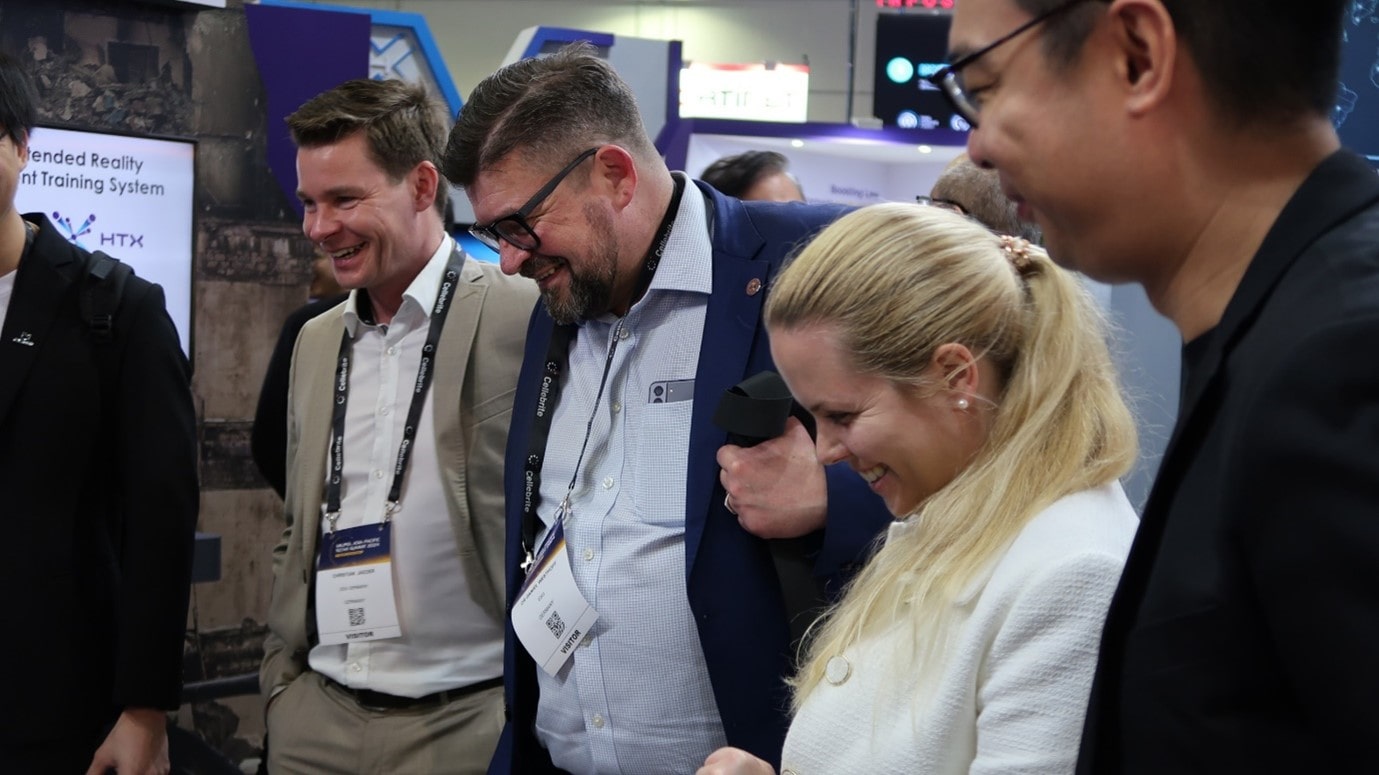
All smiles as visitors were left delighted by the idea and technology behind the insect hybrid robot. (Photo: HTX)
Jerald Ong from the Sense-making & Surveillance (S&S) CoE was also pleasantly surprised by the keen interest in InXeption, S&S CoE’s AI image and video enhancement project. “The crowd was a bit overwhelming at the start, but I’ve gotten used to it and am so excited to meet many new faces, and to share our hard work with them,” he declared.
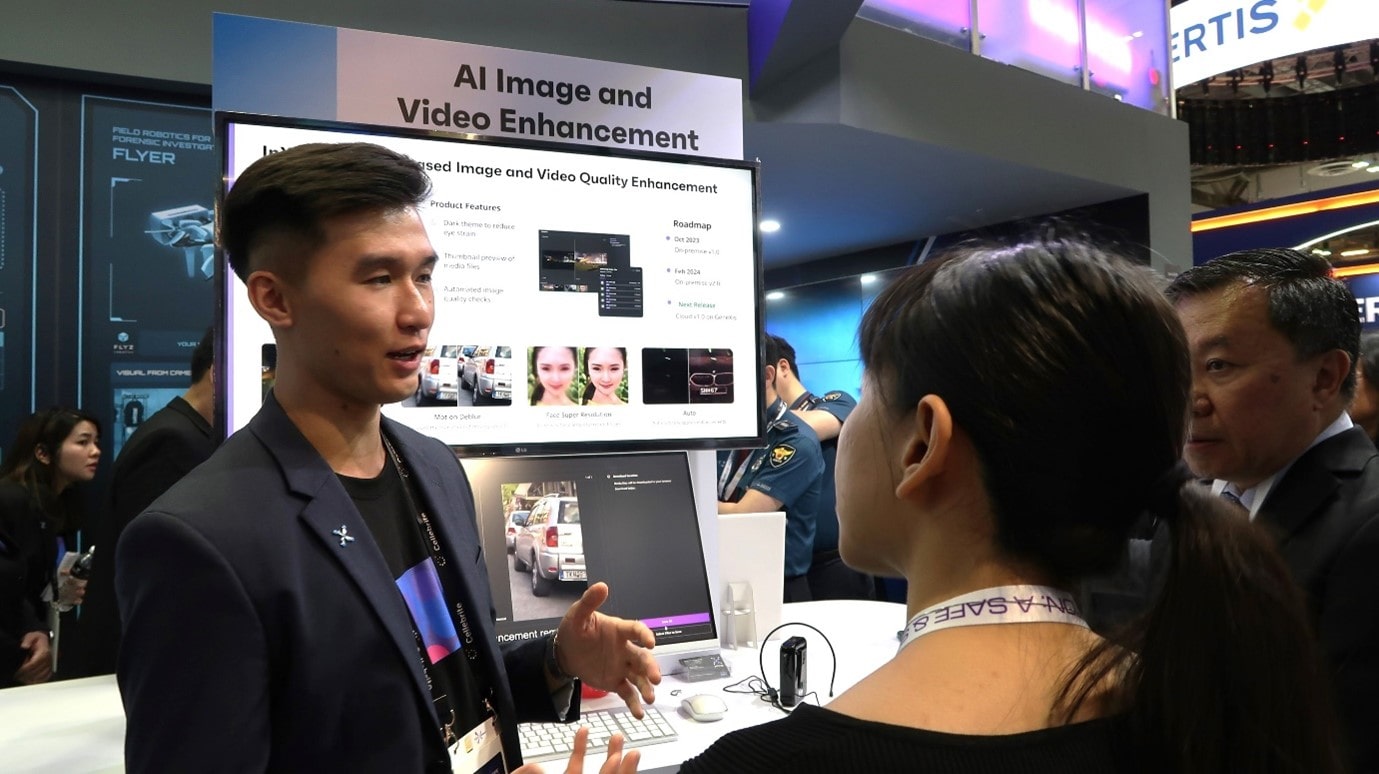 Jerald sharing with visitors how InXeption can help solve image quality issues faced in the process of solving crimes. (Photo: HTX)
Jerald sharing with visitors how InXeption can help solve image quality issues faced in the process of solving crimes. (Photo: HTX)
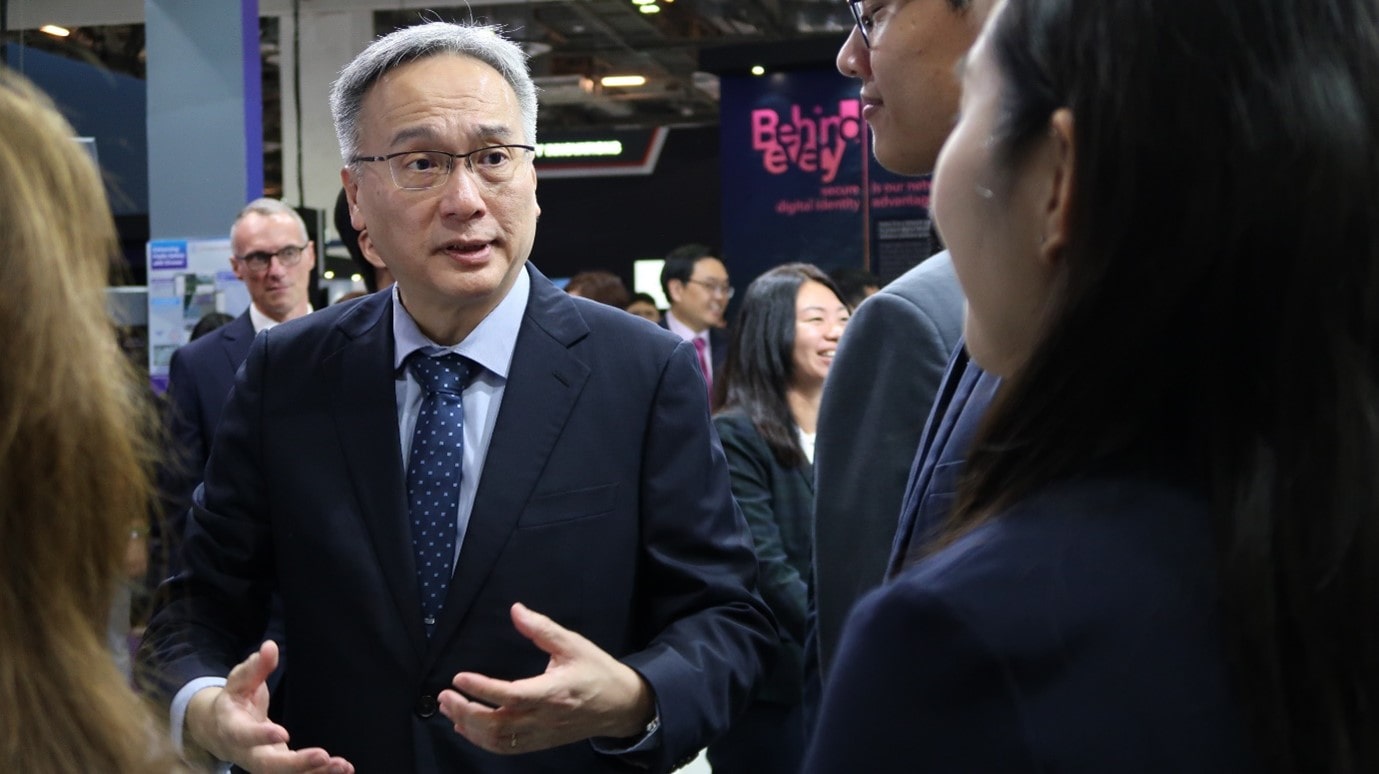
Mr Pang Kin Keong, Permanent Secretary of the Ministry of Home Affairs, spotted at the HTX Zone engaging in deep conversations with Xponents on the need for innovation. (Photo: HTX)
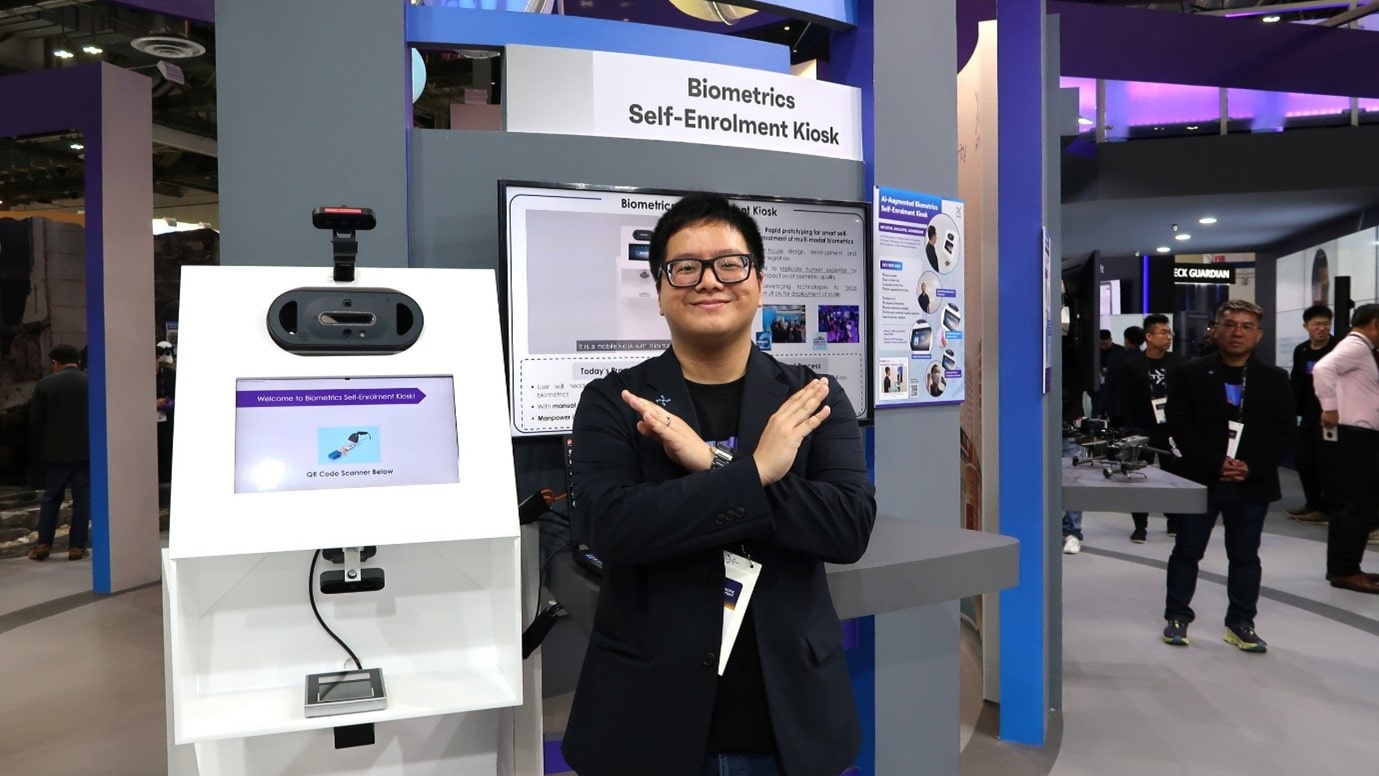
Timothy Lim from Biometrics & Profiling CoE proudly posing with the Biometrics Self-Enrolment Kiosk he worked hard on to contribute to enhancing Singapore’s border security. (Photo: HTX)
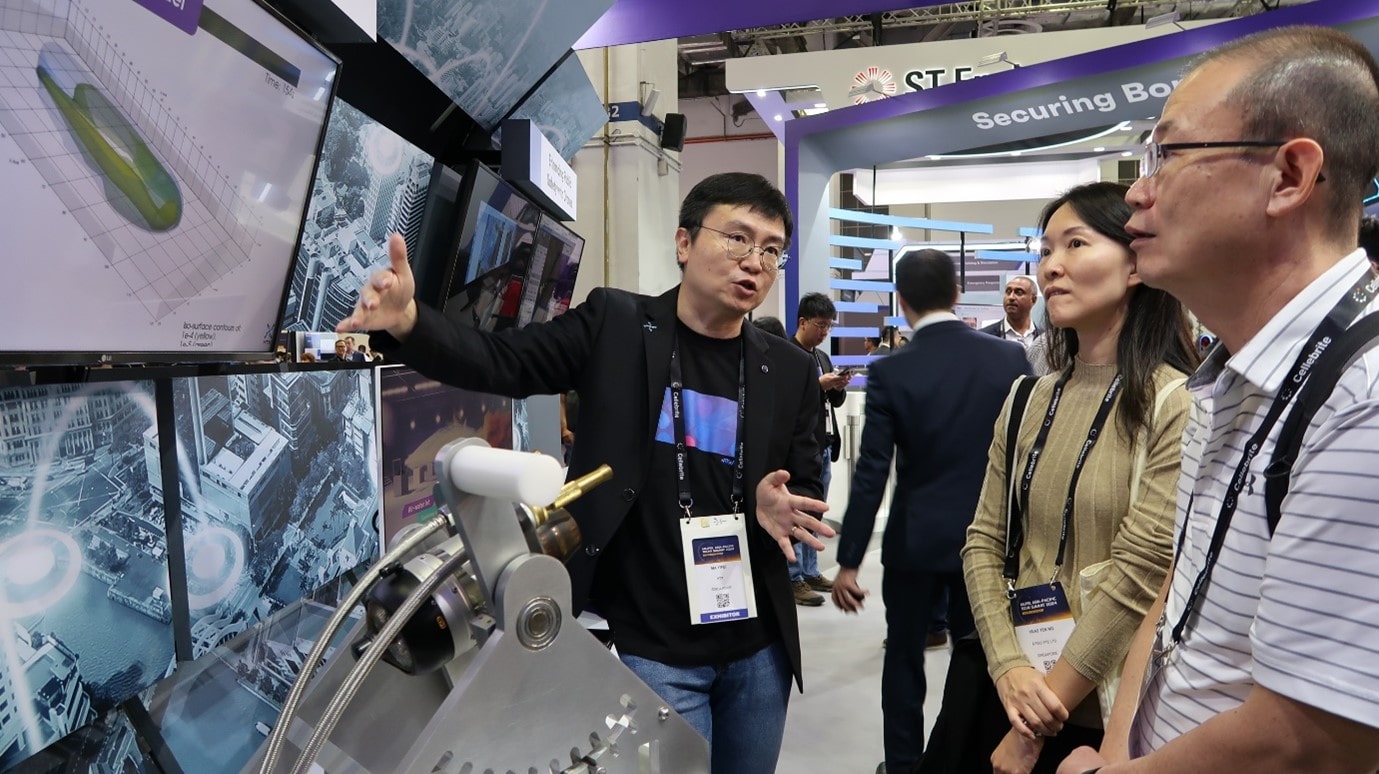
Ma Yifei from Chemical, Biological, Radiological, Nuclear, and Explosives (CBRNE) CoE, enlightening visitors on the Computational Fluid Dynamics (CFD) based simulation platform used to safeguard public spaces by assessing the effectiveness of various mitigation measures against toxic chemical plumes. (Photo: HTX)
For some Xponents, it was also the first time attending such a landmark event. James Quah of the Disruptive Technologies Office (DTO) declared, “I’ve never been to such an event before. I think it’s interesting to be able to showcase our technology to the people who matter in homeland security, as well as to see what the rest of the world is doing.”
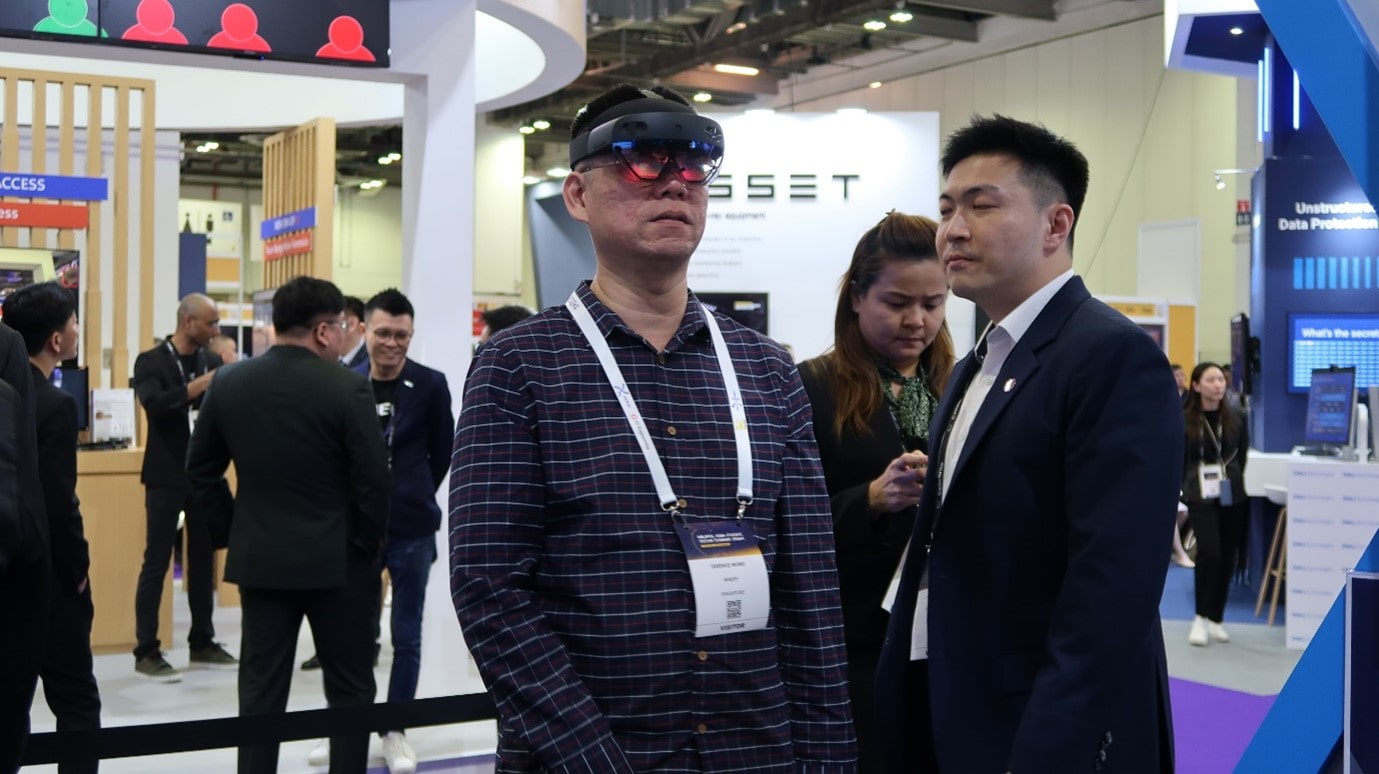
A visitor having a go at DTO’s extended reality headset that connects to its futuristic HoloDex platform, which integrates generative AI, digital twins, Internet of Senses and XR for the realistic construction of environments such as crime scenes. (Photo: HTX)
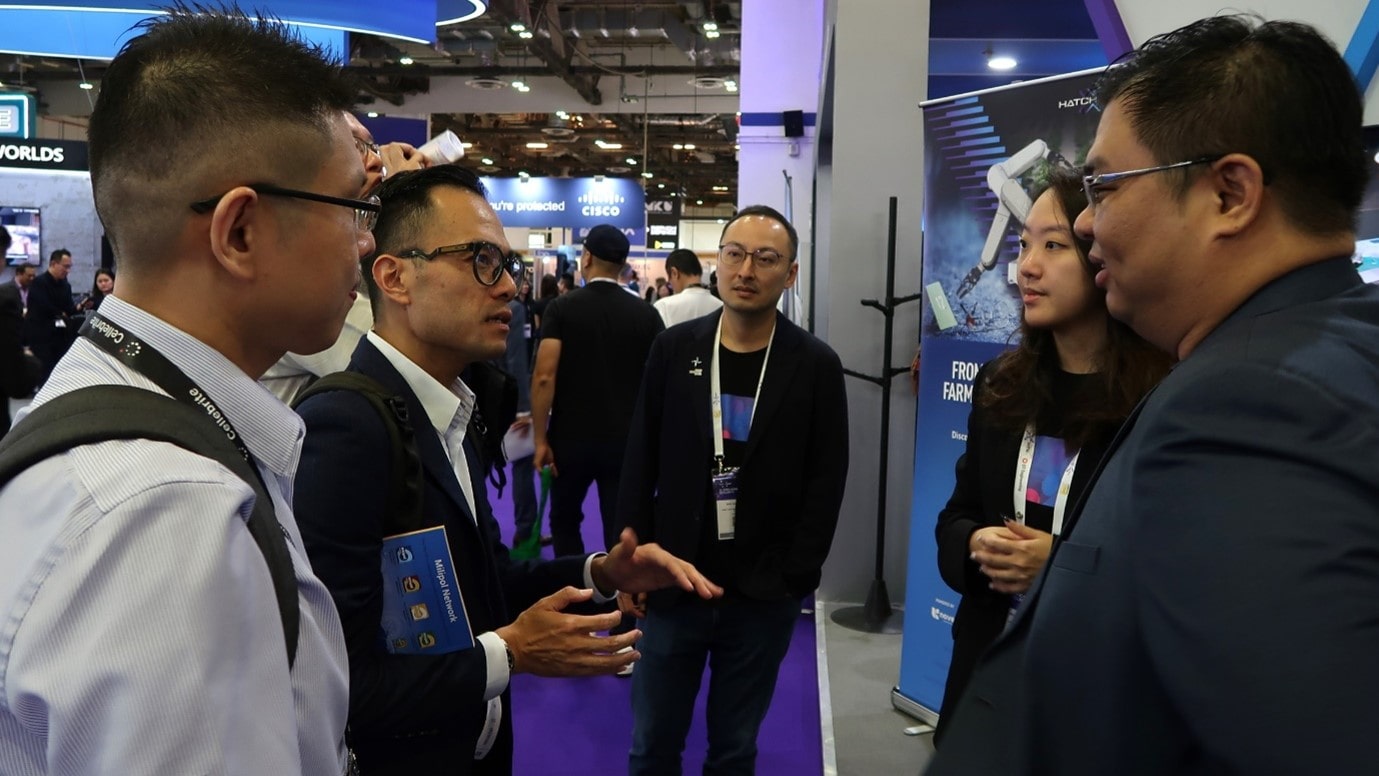
At the Seeding Innovation zone, visitors also got the chance to learn more about Hatch, HTX’s innovation hub and to get up close and personal with Hatch’s DimensionX Open Innovation Challenge winners.
Electrifying beginnings
The HTX Zone also played host to a red-letter occasion – the launch of the Electronic Pump Ladder (EPL), Asia’s first fully electric pump ladder. The EPL is a joint project from HTX’s Vehicle & Weapon Systems (VWS) CoE and the Singapore Civil Defence Force (SCDF).
.jpg?sfvrsn=822f33bc_1)
(From left to right) Mr Chan Tsan, Chief Executive, HTX and Deputy Secretary (Development), MHA, Mrs Josephine Teo, Minister for Communications and Information and Second Minister for Home Affairs, Mr K. Shanmugam, Singapore’s Minister for Home Affairs and Minister for Law, SCDF Commissioner COMR Eric Yap, and Mr Aubeck Kam, Chairman HTX, Permanent Secretary (Home Affairs Development) and Permanent Secretary (Social and Family Development) sealing this momentous occasion with a push of the launch button.
Stanley Chong from VWS CoE shared, “The launch event was very exciting, but it was equally stressful. We are very excited that the EPL has been launched and are happy we had the chance to work with SCDF on it. Now that it has been launched, we will be putting the vehicle to trial and work to harness its full potential.”
Working with industry to develop AI for homeland security
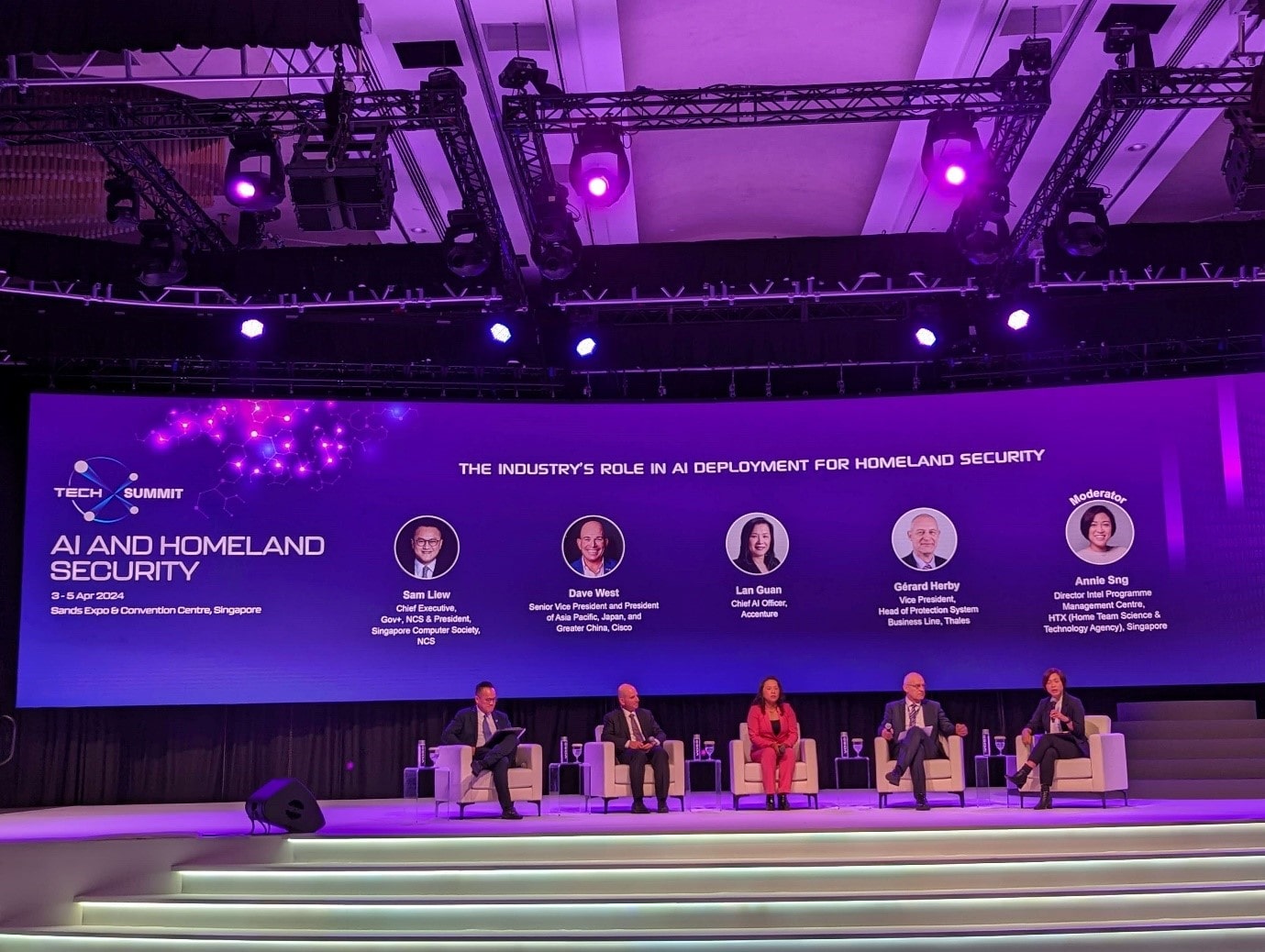
(From left to right) Sam Liew, Dave West, Lan Guan, Gérard Herby, and moderator Annie Sng, Director Intel Programme Management Centre, HTX. (Photo: HTX)
Back at the MAP-TXS conference hall, the next panel focused on how governments can work with industry to develop AI for homeland security.
Sam Liew, Chief Executive, Gov+, NCS, and President, Singapore Computer Society, NCS, advised that industry and government coming together is paramount for AI to be successful. There needs to be a culture of co-creation, “We need to co-create with the private sector and be ready to experiment and fail, and then try again.” In addition, governments need to upgrade the skills of their officers so they are comfortable with using AI at work.
Currently many government agencies rely on Generative AI models provided by big AI companies, noted Lan Guan, the Chief AI Officer of Accenture, who also shared that data is a competitive advantage. The quality of data government agencies bring to AI training models is key for these models to give more accurate responses.
Since people are concerned about their data and privacy, Dave West, Senior Vice President and President of Asia Pacific, Japan, and Greater China, Cisco, noted that industry and governments face the challenge of data responsibility and how to ethically implement AI, especially. To ensure successful collaborations, industry needs to ensure their AI models are safe and reliable and meet governments’ requirements.
Gérard Herby, Vice President and Head of Protection System Business Line, Thales, advised that the major operational challenge of AI is to process the ever-increasing volume of data with fewer personnel at greater speed. With this growing volume of data, for example, the police can use AI to determine the behaviour of suspicious people in crowded cities. Maintaining AI systems is difficult as they need to be fed with lots of data and must be constantly trained to work at their optimal capacity. Data cycle management is hence important for keeping AI performing at its best.
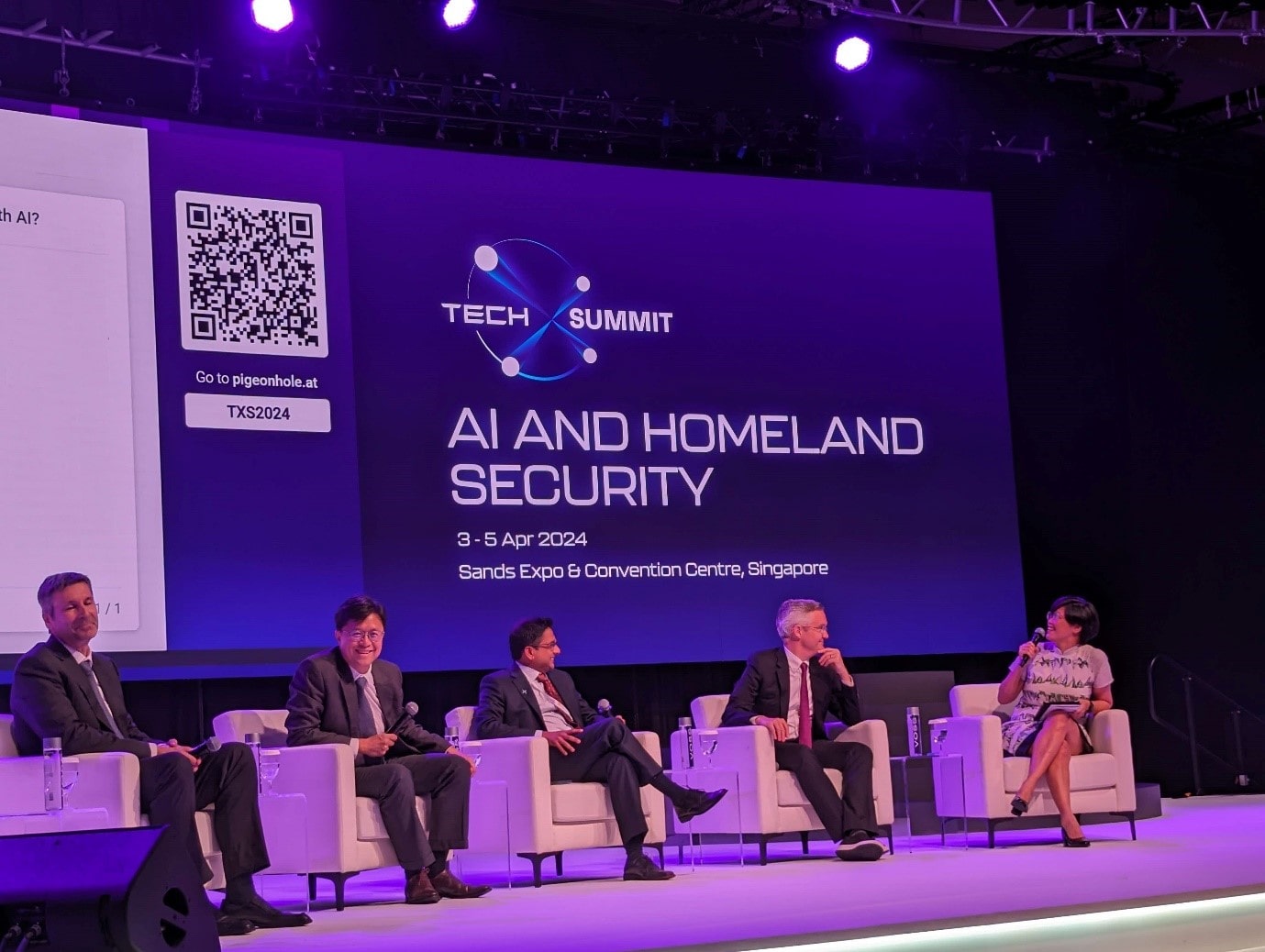
(From left to right) Dr. Michael Zeller, Yeong Zee Kin, Prithvi Rai, Prof. Simon Chesterman, and moderator Lee Wan Sie, Director, Development of Data-Driven Tech, Infocomm Media Development Authority (IMDA), Singapore. (Photo: HTX)
The last panel of the day was on AI safety. Prof. Simon Chesterman, the Vice Provost (Educational Innovation) and Dean of NUS College at the National University of Singapore, as well as the Senior Director (AI Governance), at AI Singapore, warned that we don’t understand how AI models make their decisions and that should be a concern for the public sector, especially since the Large Language Models running Generative AI are controlled by large private corporations. Another concern is AI datasets generated from biased human data, as human bias can spread into AI results. Government agencies should be careful about making decisions based on biased AI results.
Dr. Michael Zeller, the Head of Artificial Intelligence Strategy and Solutions at Temasek, advised that while AI systems may be used to help make decisions, humans should exercise the ultimate discretion. This is especially since Generative AI is trained on a lot of content from the Internet which one may not want to rely on in important decision-making. He also warned that regulation can’t keep up with the speed of AI innovation. AI systems are massively complex systems that we don’t understand, and we likely won’t know when they start failing.
Yeong Zee Kin, the Chief Executive of the Singapore Academy of Law, noted that AI systems are tools organisations choose to bring in. They can choose to what extent they wish to implement AI and how much human intervention they want. By making these decisions, they choose the level of risk at which AI is implemented.
Zee Kin also felt that the principles for AI regulation need to be clear. The expected standard of behaviour needs to be transparent as companies need to know the standards the authorities are holding them to. These standards should be measurable, and the industry should come together to determine what good benchmarks for these standards are.
AI is no different from adopting any other technology, Prithvi Rai, the Founder and Chief Executive Officer of Borneo Data, argued. For the safer adoption of AI, organisations can start with small datasets and use-cases to see which AI models work and which don’t. He also felt that regulations with clear standards and guidelines are important. AI policymakers should engage with industry and ensure the guidelines for companies are clear. Without clear standards, regulation will fall apart.

![[FEATURED NEWS] Exuberance and innovation: Highlights from MAP-TXS 2024](/Cwp/assets/htx/images/listing-card-placeholder.png)